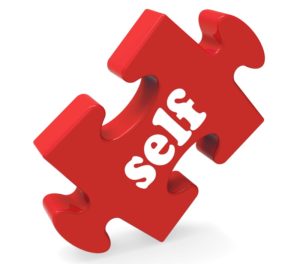 Kouzes and Posner stated in their book, The Leadership Challenge (Jossey Bass, 2012), that “Engineers have computers; painters, canvas; musicians, instruments. Leaders have only themselves. The instrument of leadership is the self, and the mastery of the art of leadership comes from mastery of the self. Leadership is self-development… And it starts with taking a look inside” (p. 337).
Kouzes and Posner stated in their book, The Leadership Challenge (Jossey Bass, 2012), that “Engineers have computers; painters, canvas; musicians, instruments. Leaders have only themselves. The instrument of leadership is the self, and the mastery of the art of leadership comes from mastery of the self. Leadership is self-development… And it starts with taking a look inside” (p. 337).
“Self-awareness… is a neutral mode that maintains self-reflectiveness even in the midst of turbulent emotions” — Daniel Goldman
This is the basis of my coaching practice: having my clients recognize that the first step in growth is really understanding self. It becomes the jumping off point to developing the skills to become a better leader, a better person. Another writer who talks about this and who I love is Chade-Meng Tan, the author and inspiration behind the Search Inside Yourself (Harper One, 2012) movement that came out of Google. Tan uses Daniel Goldman’s definition of self-awareness, which is the “Knowledge of one’s internal states, preferences, resources and intuitions”. He then expands on by stating that “self-awareness goes beyond insight into one’s moment-to-moment emotional experience, it expands into a broader domain of ‘self’, such as understanding our own strengths and weaknesses and being able to access our own inner wisdom” (p.81).
“Mindfulness means paying attention in a particular way: on purpose, in the present moment, and non-judgmentally” – Jon Kabat-Zinn
Of course in a perfect world we would all be disciplined enough to make a healthy, accurate self-assessment, or, as Tan states, “Blatant self-discovery” of our own emotional state and awareness. This would be:
- Emotional Awareness
- Clarity into my own emotions
- Able to view myself from third person perspective
- Objective about emotional experience
- Accurate Self-Assessment
- Honest about my own strengths and weaknesses
- Clear about my own priorities and goals
- Comfortable with myself
But this is not a perfect world and most of us, I would say, don’t have that compelling discipline to do it. That is where a coach comes in. Coaches are independent parties who guide clients through this process of self-assessment and self-awareness. They do this by using a variety of tools and processes, but mostly questions. The results can be significant. In my practice I have seen clients’ eyes light up and exclamations of “so that’s why I do that!” or, “Ok, now that makes sense!” There are a lot of nodding heads.
So this is where I disagree with Kouzes and Posner (a little, and with great respect). Leaders aren’t limited to themselves, at least they don’t have to. They can hire an executive coach to work with them, to help them reflect on what it means to be a leader and if necessary where and how to grow as one.
John Whitehead, coaches’ individuals and organizations in becoming more effective by helping them improve their interpersonal communications, emotional intelligence and resiliency.
*******Are you wondering if having a Leadership/Personal Development Coach is right for you? Contact John for a complimentary, exploratory coaching session at john@johnkwhitehead.ca********
If you would like to get notifications for when I post, please go to my blog site and register. I promise I will not spam or use your email address for anything else. You can visit and register for my blog at https://johnkwhitehead.ca/blog-2/
